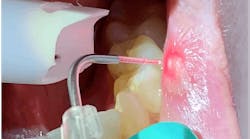It’s not just about price – understanding the net tax effect for your dental practice: Part I
When dentists seek to either buy or sell a dental practice, they, along with their advisors, are inclined to emphasize “price” at the exclusion of other important factors. This myopic focus brings to mind an old saying that pertains to commercial transactions — parties can have their “price” or “terms,” but not both. Not surprisingly, this mindset also applies to buying and selling dental practices.
When buying or selling a dental practice, price and terms need to work together for the parties to understand the net cash impact of their purchase or sale. At the end of a transaction, it is prudent for a seller to focus more on the “net dollars” that the seller can put in his or her pocket than the actual stated purchase price. The real dollar amount of the purchase price depends on both the tax effects and the structure of the deal.
Stock sales vs. asset sales
Most dental practices are purchased and sold as either asset sales or stock sales. From the perspective of the selling dentist, stock sales are usually preferable because they tend to come with more favorable tax treatment. While asset sales can still have favorable tax treatments to the seller, they also provide certain tax benefits to the buyer.
There are many details associated with the tax ramifications of the purchase and sale of a dental practice. Consequently, involving lawyers or accountants who understand the tax treatment early in the transaction is preferred. Too often dentists agree to a handshake on the purchase price, and then work out the details later. Unfortunately, once the price has been agreed upon, it becomes more challenging to structure a deal in a fair way for both parties.
ALSO BY BARRY LEVIN AND PHILIP BOGART:Do An Initial Exam Before Buying a Dental Practice
Hiring an Associate: Employee or Independent Contractor?
Purchase price allocation
If an asset purchase is agreed upon, the allocation of the underlying assets should be part of every transaction. This way there is no misunderstanding between the parties regarding how they will allocate the purchase price among the individual assets, such as furniture, fixtures and equipment, supplies, goodwill, and covenant not to compete.
The tax ramifications on each of those allocations can be dramatic. For example, tax treatment on depreciating the portion of the purchase price allocated to each of these groups of assets can vary significantly. As a general rule, if the allocation is beneficial for the seller, it is not advantageous to the buyer and vice versa. For example, while allocating a significant amount of the price to goodwill is favorable to the seller, it is generally not advantageous to the buyer. Either way, an experienced tax advisor will need to participate in this analysis because the IRS has a method that should be followed. Again, this “detail” should be settled earlier rather than later.
Sales taxes
Depending on the structure of the purchase and sale and allocation of the purchase price to the dental practice’s underlying assets, there will likely be sales or use taxes due that are the result of the purchase and sale. These taxes can be significant. It is imperative for the parties to negotiate from the start which entity is going to be responsible for these taxes. Often, the parties agree to split taxes because no one party wants to be responsible. Again, the amount of these taxes is affected by the agreed upon asset allocation also.
Other terms
Obviously, there are many other details that need to be analyzed in connection with any dental practice purchase or sale. It is crucial to understand not just the “price” but also the “terms” before getting too far into any transaction. Any letter of intent or term sheet should address the entire deal structure (i.e., price and terms) prior to being signed. It is also preferable to involve advisors who have experience in dental transitions as early in the process as possible. It is actually more efficient and less expensive to involve the experienced professionals soon in the process (i.e., before signing an LOI), as they can provide the appropriate guidance on the net cash impact of the transaction, which, at the end of the transaction, is what buyers and sellers care about most.
Barry F. Levin is a partner and chair of Saul Ewing LLP’s business and finance department. Philip M. Bogart is a special counsel in the business and finance department in Saul Ewing LLP’s Baltimore office. Mr. Levin and Mr. Bogart regularly represent dentists — and the business entities in which clinicians practice — in all aspects of the dental practice structure through and including the structuring, negotiation, documentation, and implementation of associateships or employee arrangements, partnership arrangements, acquisitions, and sales and mergers of mature practices. They are also cochairs of Saul Ewing's Dental Transitions Practice. Visit the website at www.saul.com.







